Once a year, the Commission President gives a “State of the Union” speech. For Jean-Claude Juncker, it was the fourth and last time he delivered this speech. Besides the Greece and migration crises as well as Brexit, Juncker’s term in office has been marked by rising nationalism in several EU member states. Juncker, in his function as Commission President, started the debate on a number of EU reforms – the euro for all, closer cooperation between member states and linkages between the institutions.
During the interview, he spoke about his goals, possible solutions for the European Union’s future challenges, and how Europe’s richness lies in its diversity. In order to strengthen the EU and avoid deadlock, unanimity voting should be abolished in certain areas, said Juncker. His legacy starts with a call for strength and unity and a plea for a European sovereignty.
Dilnaz Alhan for Treffpunkt Europa: Mr. Juncker, you have been head of the European Commission since November 14, 2014. What are and were your concrete goals as President?
Jean-Claude Juncker: When I assumed office, I set 10 priorities on which my Commission has concentrated ever since. Our aim is to be ambitious when it comes to the big questions, like when we are dealing with migration, trade, the digital future and the strengthening of our economic and monetary union or our weight on the world stage. At the same time, Europe has to be more modest on questions which are better dealt with on the national or regional level. Thus, we do not need more Europe as such but rather a Europe which creates added value.
What does 2018 hold for Europe? What is on the agenda until the end of your mandate?
Juncker: Up until the elections of the European Parliament, we want to use the time for people to feel that Europe protects, empowers, defends them. For this very purpose, we have presented a roadmap with specific steps, which we want to implement before the summit in Sibiu, Romania this coming [May] where the Heads of State and Government will convene. With that, we will deliver tangible results for citizens before the European elections – be it by extending the protection of our common borders or by supporting those member states which still don’t have the euro to become part of the Economic and Monetary Union.
At the same time, we have to set the course for the future. Last May, the Commission already presented a balanced proposal for the Multiannual Financial Framework (2021-2027). Now it is up to the member states and the European Parliament to equally quickly conclude the negotiations. This is pivotal, as any delay could mean a gap in resources for planned or ongoing projects. Infrastructure, such as roads which connect Europeans, depend on this next financial framework. With each month of delay, 5,000 scientists could lose their jobs while many students and teachers would not be able to begin their Erasmus+ exchange programme as planned. The MFF being agreed on time or not will impact on the lives and future dreams of thousands and thousands of Europeans.
How can we change the EU in a way that it can deal with the challenges to come?
Juncker: I have recently initiated this debate with the White Paper on the Future of Europe. Rather than explicitly set out a path, I presented scenarios for how the European Union could develop. In the last “State of the Union” speech, I used this debate to propose concrete steps how we could build a more united, stronger and more democratic Europe by 2025. Everyone is welcome to contribute to this debate, for example at one of the numerous Citizens’ Dialogues across the Union. Since the beginning of the mandate, we have already sought contact with citizens more than 1000 times in this way.
One of the allegations against the EU is strong overregulation and the resulting loss of national identity. How do you address those who are telling you, “Brussels dictates everything”?
Juncker: Europe’s richness lies in its diversity. That’s why I have, from the first day of my term in office as Commission President, paid attention that we only develop European ambitions on topics we can only master together. That’s the case, for instance, when we are talking about the protection of our common borders or trade issues where we can achieve more when we join forces. Everything else is the responsibility of member states or their regions, which are simply closer to certain matters. We are enforcing this principle of subsidiarity firmly. While the previous Commission still proposed around 100 initiatives a year, we have reduced this number to an average of 20 in the past years. Since the beginning of the mandate, we have, moreover, suggested to simplify 162 legislative proposals and to withdraw 134. 84 legal acts have been suspended (1) – because sometimes less is more.
How will the Brexit negotiations conclude?
Juncker: That will depend on the Brits. The Commission and our chief negotiator Michel Barnier are, in any case, doing everything to find solutions which ensure the rights of citizens and businesses, as the decisions in the life of many people depend on them. We work day and night on compromises with the aim to avoid a disorderly Brexit and to protect the principles of the European Union, especially the freedoms of the Single Market, all in the interest of the people in Great Britain and the EU.
Just recently, you have averted a trade war between the EU and the US. In negotiations with President Trump, you surprisingly struck an agreement. How did you manage that, and would you say the conflict has been solved?
Juncker: The power of arguments and numbers are on our side – and as a businessman, President Trump has understood that this deal is of mutual interest. In the end, a trade war would have seen only losers. As a result of our deal, Europeans and Americans will profit equally, as we have opened up a new chapter of our close cooperation. For instance, we have agreed to abolish tariffs in various fields and to deepen the trade of services, chemicals, and medicinal products as well as soybeans – all for mutual benefit. A working group dealing with the details has already started its work.
Amnesty International is accusing Turkey of torture. In 2016, reports about torture and other forms of abuse while in police custody in the southeastern Kurdish regions where curfews have been imposed accumulated, also in Ankara and Istanbul after the attempted coup d’état. After declaring a state of emergency, 118 journalists were remanded in custody and 184 media outlets have been shut down via governmental decree, arbitrarily and permanently, so that the oppositional media landscape has been reduced significantly. EU citizens are held captive because of political offences. Does the EU put enough pressure on Turkey to respect human rights? Is Europe doing too little?
Juncker: The European Union’s position is clear: When we’re talking about the future prospects of EU-Turkey relations, concrete and sustainable improvements regarding the rule of law and fundamental freedoms will play a central role. We expect Turkey to revert certain measures after the end of the state of emergency which have negatively impacted the rule of law, the independence of the judiciary as well as fundamental freedoms. These have targeted the very heart of Turkish democracy. We have not only addressed our serious concerns on all levels to the Turkish government, including on freedom of speech, but we have also explicitly noted them down in the progress report. The words of journalists, who work for the sake of democracy, should get them on front pages, not in prison.
What is your point of view on the Ukrainian crisis and the conflict with Russia? What has to be done?
Juncker: The European Union will stay faithful to its word, just like it did in the past three years. We will do everything we can to find a solution which respects Ukraine’s sovereignty and territorial integrity, as well as international law. This is why we are supporting Ukraine in its transformation. Moreover, we have reacted to the Russian annexation of Crimea with targeted sanctions – which we renewed last month. The key for better relations with Russia will be the complete implementation of the Minsk Agreement.
In 2015, Iran agreed to international supervision of its nuclear program. The agreement is viewed as a milestone for Iran’s relations with the West. US President Trump has threatened to call off the deal in its current form. Is the EU capable of maintaining the agreement when the US turns its back on it?
Juncker: Reliability is what makes global stability. That is why Europe has to adhere to its position even when the US unilaterally withdraws from the Iran deal. The deal may not be perfect but it was an important step towards peace in the region and worldwide. As long as Iran is compliant, the European Union as one of the architects of the agreement is devoted to this arrangement for the sake of peace and security. In this sense, the EU wants to maintain trade and economic relations to Iran which – as a consequence of the agreement – had already normalised. For this reason, we have updated and implemented the so-called Blocking Regulation. With that, we can mitigate the ramifications of the US sanctions on EU companies which rightfully do business with Iran.
Additionally, the EU is working – in close coordination with the member states and other partners – on concrete measures to maintain cooperation with Iran in crucial economic sectors. For instance, we adopted an aid-package at roughly 18 million euros in mid-August which allows us to support projects for a sustainable economic and social development in Iran. Eight million euros are reserved for the private sector and will be used to support, among others, measures for small and medium-sized enterprises with high potential.
Under pressure from the CSU, Chancellor Merkel changed her liberal approach and toughened the German refugee policy. On which side are you in the refugee question?
Juncker: On this question, I am European. This is the only way towards an acceptable solution in the long-term. Solidarity is the key for me. We cannot just leave the responsibility with those member states which are more exposed because of their geography. Shared responsibility is easier to carry for everyone, in the end. This is similarly valid for the protection of our common borders for which we have created a European Border and Coast Guard in record time. A project which, by the way, has support from all member states.
Are migration and asylum polices the reason for the current state of the Union?
Juncker: Migration and asylum are topics that are often discussed in highly emotional terms, partly because it concerns what keeps our Union together at the very core: European solidarity.
There are two populist mistakes in the migration question: First, that there is one single simple solution. Reality is different, it requires big efforts to balance out solidarity and self-responsibility. Secondly, that this question can be solved in a national solo effort. On the contrary, it is precisely on this issue that we must coordinate joint actions with other European partners. Without common asylum standards, common border protection, a common Africa policy, and a common peace and security policy, the Schengen area and our beloved freedom of travel will not survive.
Coherence is therefore an important European virtue: On the migration question, we have to close ranks, not borders. I am convinced that in the end, European reason will prevail because this is our formula for success. For instance, we have made big progress by rescuing 690,000 people from the sea with EU missions, by creating a European Border and Coast Guard, or by reducing the number of irregular entries by 95 percent in comparison to the peak in autumn 2015 – all of this thanks to joint forces (2). When it comes to migration and asylum policy, a look at the facts and our shared European values is highly advisable. Solidarity can, however, not be compelled – it has to come from the heart, especially when human lives are concerned.
The European elections are going to take place in May 2019. Are we going to see a shift towards the (far) right?
Juncker: Observing that in some national elections, populists put forward blunt solutions instead of reasonable and concrete ones to seduce the electorate, it is indeed one of my concerns that this could happen on the European level as well. That’s why it is up to us all to counter these populists with heart and mind. As the Commission, we deliver tangible results in many policy areas which prove that Europe protects the people, empowers them and gives them opportunities – be it thanks to the social pillar, thanks to the Common Security and Defence Policy or thanks to the Erasmus programme.
In the newspapers, the younger generation is often described as a lost generation, turning its back on Europe and tired of politics. Do you agree?
Juncker: The young people I meet on my journeys through the member states are forward-looking and European-minded. For instance, about 90,000 young people have registered for the European Solidarity Corps and about 10,000 have already started their service (3), they are engaging in projects helping children with social problems, chronically ill people, and the integration of refugees. Many are also committing to the European project, which only makes sense. For Europe is – in the age of globalisation more than ever – their best chance for the future.
Why did you want to become a politician?
Juncker: For me, Europe is the love of my life. A defining role was certainly played by my father who – having been forced into the army by the Nazis – returned from the war with the conviction that this must never happen again. This resulted in his and later my own firm stance not to let politics just happen but to step in and be engaged. As a Luxembourger, I had the advantage that it is natural to think across borders and thereby to think and live European. Since I was your age, I have been observing how Europe is uniting this formerly so shattered and divided continent. For Europe to continue to fulfill this promise of peace and prosperity has been each day anew my motivation, and I see it as my mission to speak up for this unique project for which many in the world envy us.
Where do you see Europe in ten years?
I am wishing for a truly sovereign Union. By that I mean three things: First, that it draws strength from what we have in common, from its values. Secondly, that it is capable to continue securing peace and prosperity – from common trade to a united defence and more weight on the world stage. And thirdly, this Union has to be fit for the future, be it with regard to education or digital innovation. One thing is certain, the more the world grows together in the face of globalisation, the more influence each member state gains through Europe.
Last question: Which message do you want our young readers to take along?
Juncker: As a young politician, I complained to my father about those late nights in Brussels trying to reach European compromises. His answer changed my view entirely, as he reminded me of what an incredible gift such nights were, where everyone wins – in contrast to the nights he had to spend in the trench and in which only fear and terror prevailed. But the peace, wealth and the freedom Europe has brought on us cannot be taken for granted. Rather, we have to defend those achievements each and every day. Europe is what you make of it.
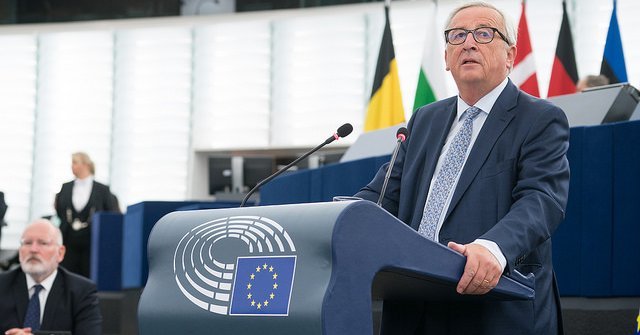
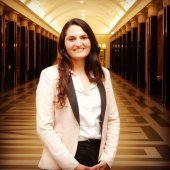
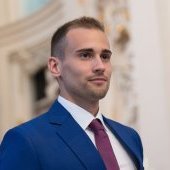
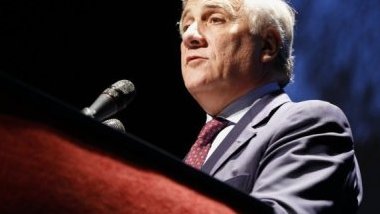
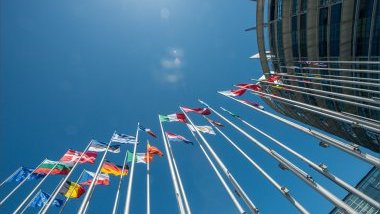
Follow the comments: |
|
